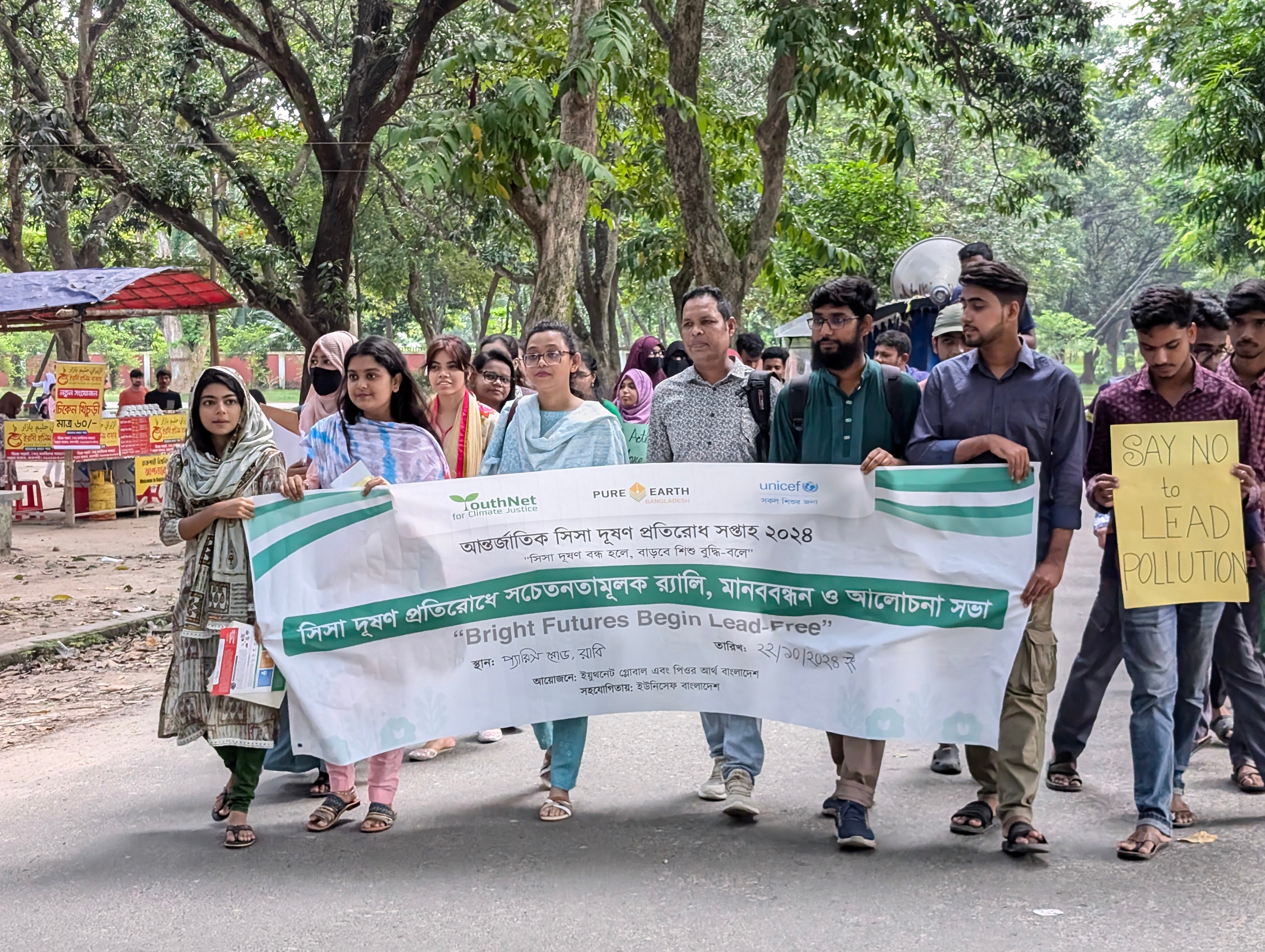
RAJSHAHI, Oct 22, 2024 (BSS) - Experts at a rally-cum-human chain here today unequivocally called for a holistic approach to protect the public health, particularly the growing children, from the deadly impact of lead pollution.
Bangladesh ranks fourth globally in lead pollution, with 60 percent of children affected by high lead levels in their blood, much to impair brain development.
Lead also increases heart disease risks among adults, contributing to 1.40 lakh deaths annually, while pregnant women face significant exposure risks. The economic impact of lead-related health issues is estimated at $28.6 billion annually.
They also called for stricter measures to combat lead pollution urging the government and policymakers to take decisive action besides encouraging public awareness and the boycott of lead-containing products.
YouthNet Global and Pure Earth Bangladesh jointly organized the rally at Rajshahi University (RU) supported by UNICEF to mark the International Lead Poisoning Prevention Week with the theme "Bright Futures Begin Lead Free."
Radia Awal Trisha, Assistant Professor of the Department of Anthropology at RU, and Mokhlesur Rahman Pintu from UNICEF addressed the meeting as focal persons disseminating their expertise on the issue.
Highlighting the negative effects of lead on children, Mokhlesur Rahman said pregnant women, children, and the elderly are all victims of lead pollution.
He added that family members involved in lead-related work, such as paint or lead battery recycling, often bring lead home, exposing health risk to children.
In her remarks, Radia Awal Trisha emphasized the importance of raising awareness about lead pollution at both the state and individual levels.
She stated that lead pollution is a relatively new issue, so widespread awareness is crucial.
Referring to the statistics related to deaths caused by lead pollution, she said the indirect impacts, such as people developing heart and lung diseases or suffering from respiratory issues, are also alarming.
The state needs to monitor the situation to ensure that soil, water and air remain uncontaminated, she opined.
Special attention should be given to keeping rivers, streams and water sources free from pollution, while individuals must remain vigilant to ensure that everyday items are lead-free.

Comments